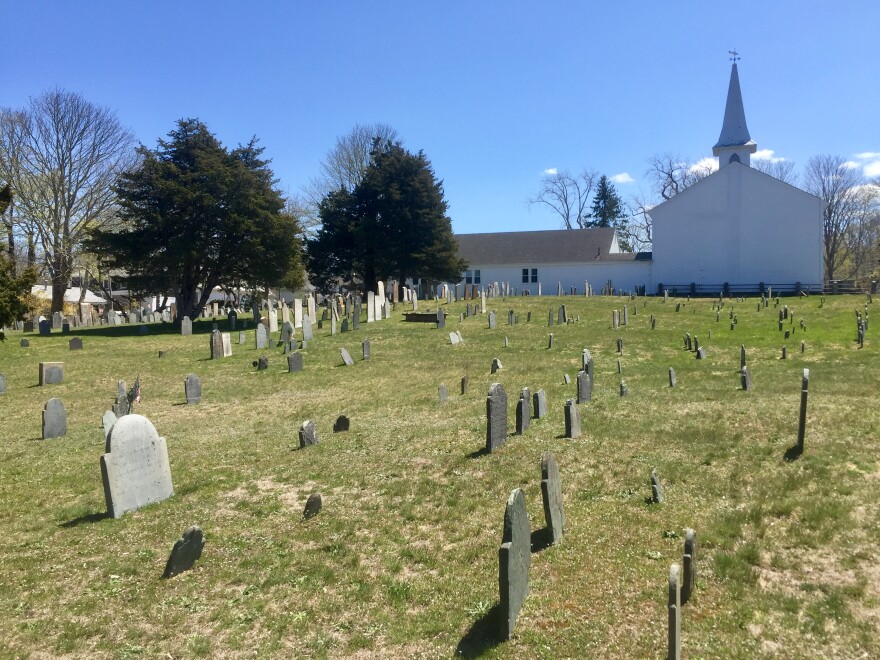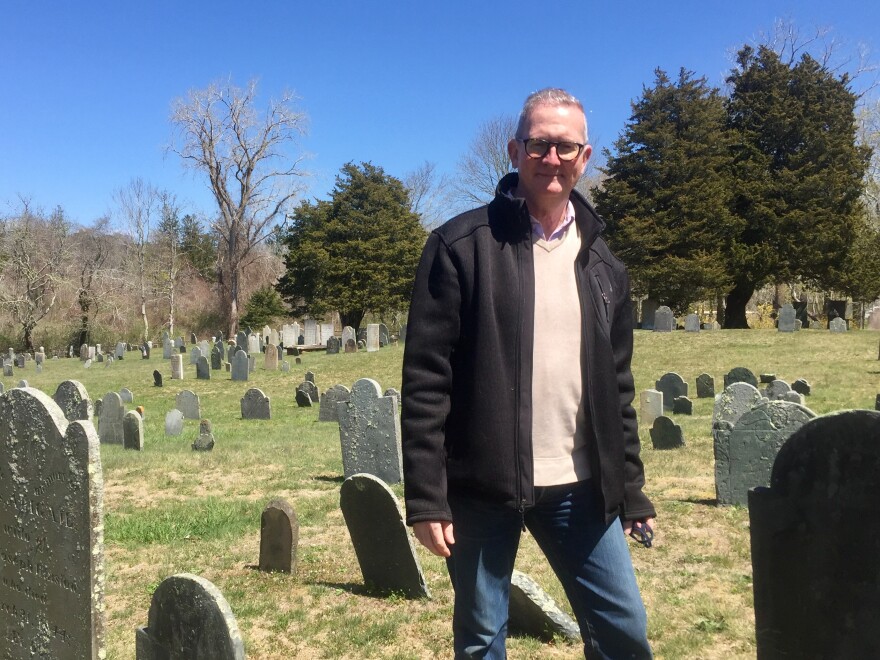As American institutions take steps to deal with this country’s racist past and present, some Cape Codders are looking at their own community history — and working not only to change, but also to atone.
Chuck Ross is walking the old burial ground at First Parish Brewster, a Unitarian Universalist church, looking for the grave of his ninth great-grandfather.
Ross sings in the choir here and recently discovered he’s descended from one of the Puritans who founded this congregation in 1700. He saw the name John Freeman in a family genealogy and realized the same name was on the sanctuary wall, right where his gaze falls when he’s sitting with the choir.
“Oh, that's cool,” he recalls thinking to himself. “Like, I've moved back to this town in 2006, and I've got this historic connection to the church that I didn't even know I had.”

In 21st century fashion, he went looking online for more about Freeman. What he found makes the anti-racism work happening at First Parish Brewster very personal.
The church has a task force focused on reparations — reparations for the enslavement of people of color, and potentially for the taking of Wampanoag land.
Ross found Freeman’s will. In it, he left a vast tract of land stretching basically to the Orleans line.
Listed somewhere between the land and his bedroom furniture, said Ross, was something like this: “I hereby bequeath my Negro man, Hamsheir, to my wife and son.”
“And that took me aback,” he said. “Because, you know, like a lot of New Englanders, I just did not equate this part of the country, especially at that time, with enslavement.”
So when Rev. Jessica Clay called on the congregation to research its history and consider reparations, he joined the task force.
One of the leaders is 27-year-old Abigail Walters, who grew up in the congregation.
She said the task force is developing a list of names — not the venerated surnames in the old burial ground, but the people recorded by first name only.
She read them aloud, slowly. "Sarah, James, Jesse, Hannah, Oliver, Jolly, Jack, Hamsheir, Anna, Mary, James, Molly, and Mille.”
They were enslaved by members of the church, along with five others listed with no name at all.
“And that was something we ran into a lot — this idea of the silence of the archives,” she said. “Archives aren't neutral places; they're created. And the Western archival tradition has really prioritized preserving the story of the white, rich, and powerful.”
The task force is getting ready to make recommendations to the congregation in June. They’re talking about committing a portion of the endowment and operating budget to reparations, acknowledging and apologizing for the harm, and creating a learning trail to educate the public.
Walters said there are a few important things to remember. One, New England benefitted from slavery in ways that aren’t always obvious.
“Fishermen sold salted cod to the West Indies to feed enslaved people on the plantations there because it was very cheap to do so,” she said.

She said people doing this work need to center the needs of descendants, and not act like the congregation has all the answers.
“And I think the most important part of this is really understanding that this is an ongoing commitment to reparations. ... Dismantling racism within ourselves and institutions — like, we can't undo 400 years of oppression and in one year,” she said.
First Parish Brewster’s is one of a number of projects around the region looking at racism in community history and taking action for change.
In Woods Hole, residents Paula Pace and Ruth Gainer spearheaded an effort to rename a road that bore the name of 19th century naturalist Louis Agassiz.
Agassiz promoted the idea that different races were created separately by God, and he considered Black people biologically inferior to whites.
A small committee of local residents successfully petitioned the Falmouth Select Board to name the road to honor cell biologist, professor, and university president Jewel Cobb.
Gainer said it feels like no small feat.
“Although it may seem like a trivial thing compared to what needs to be done in this country, it's still it's still a very significant thing for us who reside in the area and who want to see the town become a more welcoming, equitable, and diverse place,” she said.
Cobb had a long association with the Marine Biological Laboratory and was recognized as the first African-American woman to head a major university in the western United States.
The committee is organizing an exhibit on Cobb and the name change.
At First Parish Brewster, Reverend Clay said there’s a lot more to be done to acknowledge historical and ongoing harm and eradicate white supremacy.
“Not from a place of shame,” she said, “ but from a place of hope and liberation for all.”
You find all of CAI's coverage on issues of race and systemic racism here.








